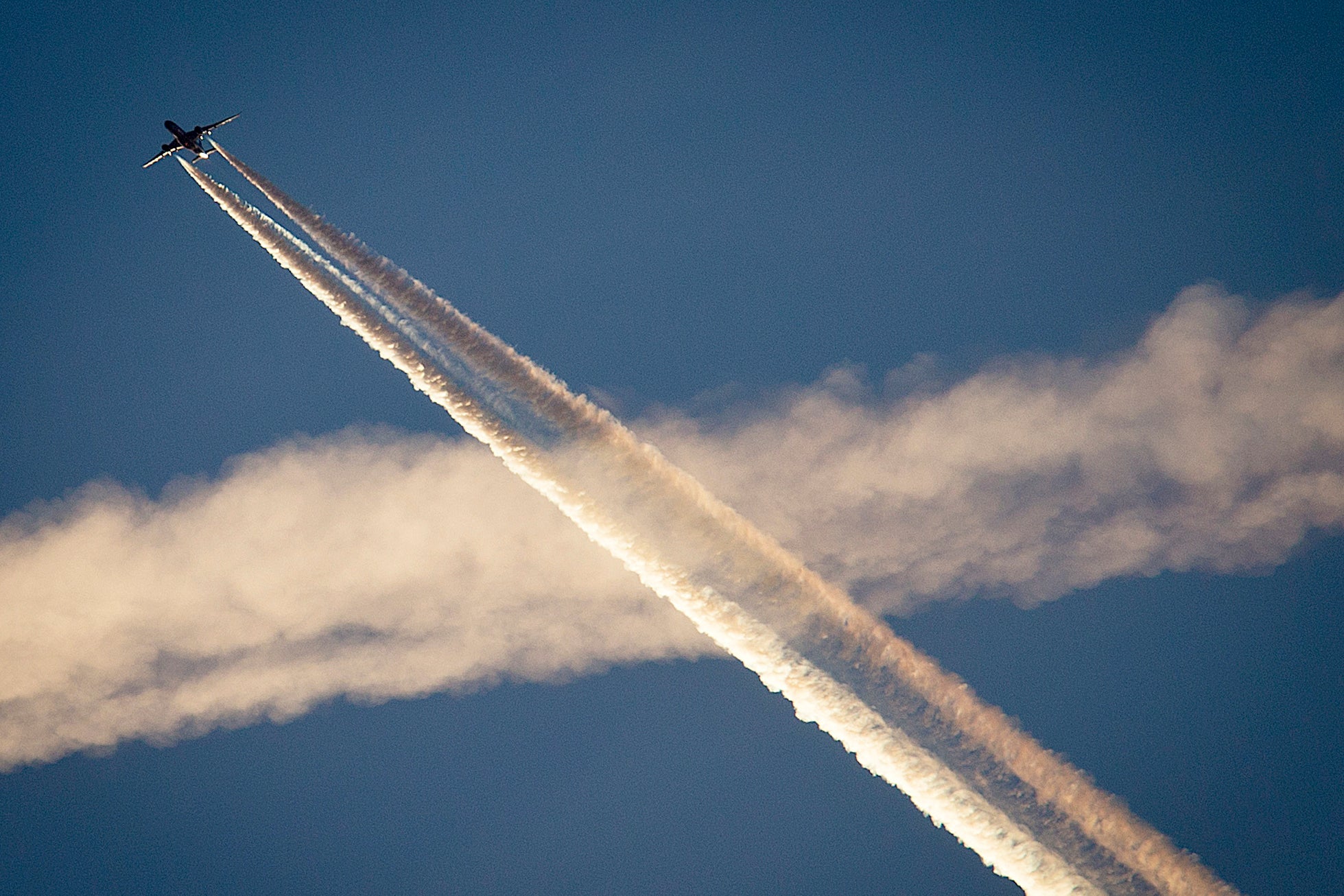Conspiracy theories about geoengineering are harming research, scientists claim
One particularly popular conspiracy theory centres around chemtrails

Conspiracy theorists are negatively impacting the development of geoengineering technology aimed at fighting climate change, according to researchers.
A team from the University of Cambridge analysed more than 800,000 tweets between 2009 and 2021 in order to understand people’s attitudes towards geoengineering – the concept of altering the climate using technology.
Ideas like space mirrors that reflect solar radiation away from Earth have been proposed to help avoid a climate emergency, with a report from the United Nations recently calling on more research to be done on how this could offset “some of the effects of increasing greenhouse gases on global and regional climate”.
The negative and conspiratorial discussions such topics attracted on social media may have impacted the amount of research that is actually done on them, the researchers concluded.
“The amount of funding that’s been made available for geoengineering research, and especially outdoor experiments, is tiny,” said Dr Ramit Debnath, a Cambridge Zero Fellow at the University of Cambridge.
“When you ask funders why this is, the reason often given is that the research is too controversial.”
One particularly popular conspiracy theory centres around chemtrails, which dates back to the 1990s. Believers in this provably false theory claim that condensational trails from aircraft are secretly seeded with chemicals that can be used for everything from climate modification to population control.
The latest research found that tweets about chemtrails offer a common link between geoengineering and conspiracies.
“There are significant and well-founded concerns around geoengineering, but fundamentally we’re interested in furthering knowledge in this area,” said Dr Shaun Fitzgerald, director of the Centre for Climate Repair in Cambridge University’s Department of Engineering and senior author of the research.
“In order to do that, we need to have more informed discussions. We don’t want to dismiss any concerns expressed on social media, but we do want to put them into context.”
The results of the study, titled ‘Conspiracy spillovers and geoengineering’, were published in the journal iScience.
Join our commenting forum
Join thought-provoking conversations, follow other Independent readers and see their replies
Comments
Bookmark popover
Removed from bookmarks